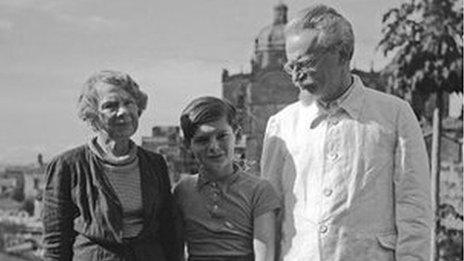Newmarket: Graves hold the story of Russian troops trained in UK
- Published
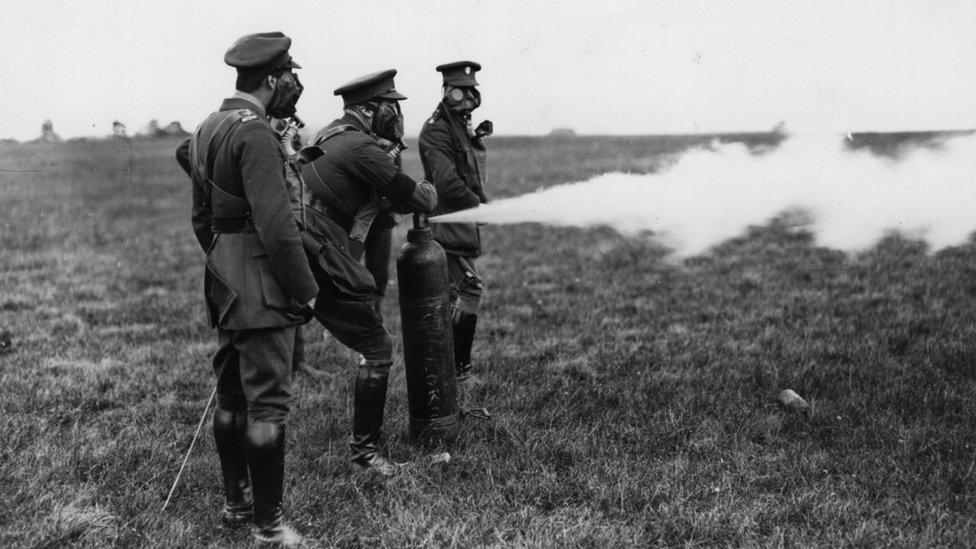
The Russian troops were trained to use the latest weapons and how to deal with poison gas
A local historian has spoken of how two gravestones got him interested in the tale of Russian troops being trained in England 100 years ago.
Lt Nicholas De Meder and Lt Eugene Petrov were buried in Exning cemetery near Newmarket, Suffolk in 1920.
They were two of more than 1,000 Russian servicemen brought to Exning from prisoner of war (PoW) camps in Germany after World War One.
They were being trained to fight the communists in post-revolution Russia.
After the Bolsheviks took power in Russia in the November Revolution of 1917, the new leaders signed a peace deal with Germany and withdrew from the war leaving Britain, France and the US to fight on the western front.
A civil war then broke out in Russia between the new ruling communists and anti-Bolshevik forces known as the White Army, which was at times supported by Britain, France and the USA.
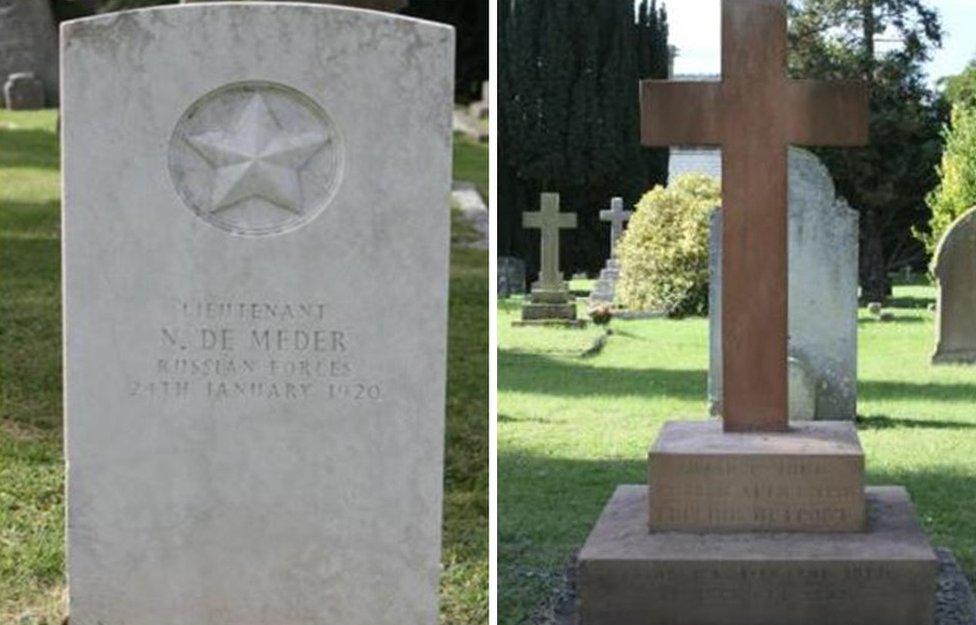
Lt Nicholas De Meder and Lt Eugene Petrov are buried in Exning cemetery near Newmarket, Suffolk
Dr Jonathan Smele, an expert on the Russian Civil War from Queen Mary, University of London, said the White Russian cause was championed by Winston Churchill, then Secretary of State for War, and British troops had been sent to back the White Russians.
Tony Pringle, 80, a member of the Newmarket Local History Society, got interested in the subject "quite by chance as I was getting some photographs of war graves and saw two graves of Russian officers".
The first gravestone marks Lt de Meder, 21, who took his own life.
Mr Pringle ordered his death certificate, which said: "Cause of death: Not being of sound mind did shoot himself with a revolver at the Russian Officers Camp, Exning, on 24 January 1920."
The other grave is that of Lt Eugene Petrov who is just recorded to have died with no explanation.

The Russian Civil War
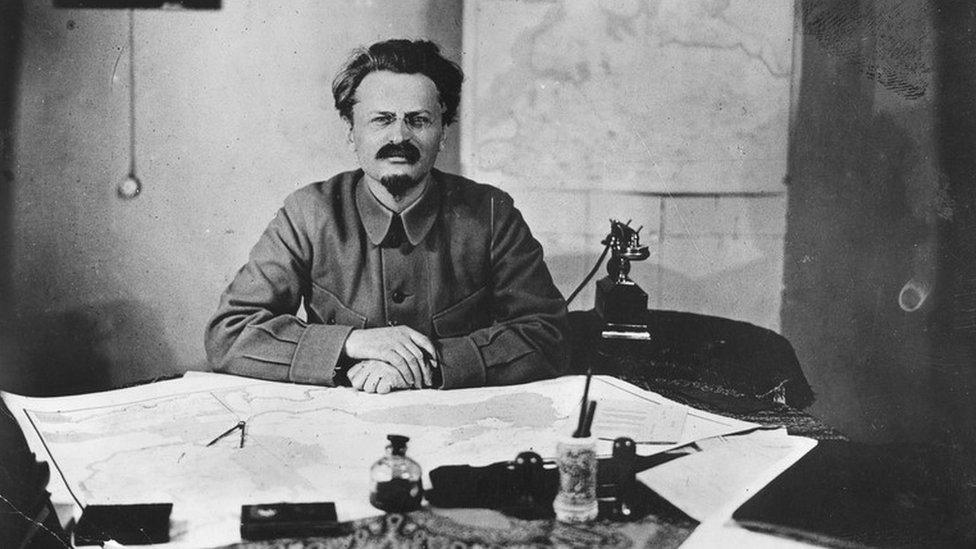
Leon Trotsky led the Red Army to victory by 1922, but lost out to Stalin in the battle to lead the Communist Party after Lenin's death in 1924
The war between the White Army (made up of monarchists loyal to Tsar Nicholas II, who had been executed in 1918, and other political groups) and the Red Army (made up of Bolsheviks) started in November 1917, after the Bolsheviks took power in the second revolution of that year.
At times the White Army had support from other former allies of Tsarist Russia, including troops and arms from Britain, France and the US, but the war was lost to the Red Army, led by Leon Trotsky, by October 1922.
Dr Smele said the main reason the White Russians lost were that they underestimated the Red Army, which controlled many of the major cities and industrial areas and therefore had more resources including arms.
"They [the White Russians] thought the Bolsheviks were a bunch of criminals who as soon as they were challenged would crumble and run away like rats on a sinking ship," he said.
Historian Prof Paul Robinson, author of The White Russian Army in Exile 1920-1941, said that after the civil war the White Russian troops, including those that trained in Suffolk, went into exile in Turkey and Yugoslavia and the Balkans.
"They found it very hard to make a living. Many also moved to Berlin and Paris. In France many got jobs with Renault cars," he said.

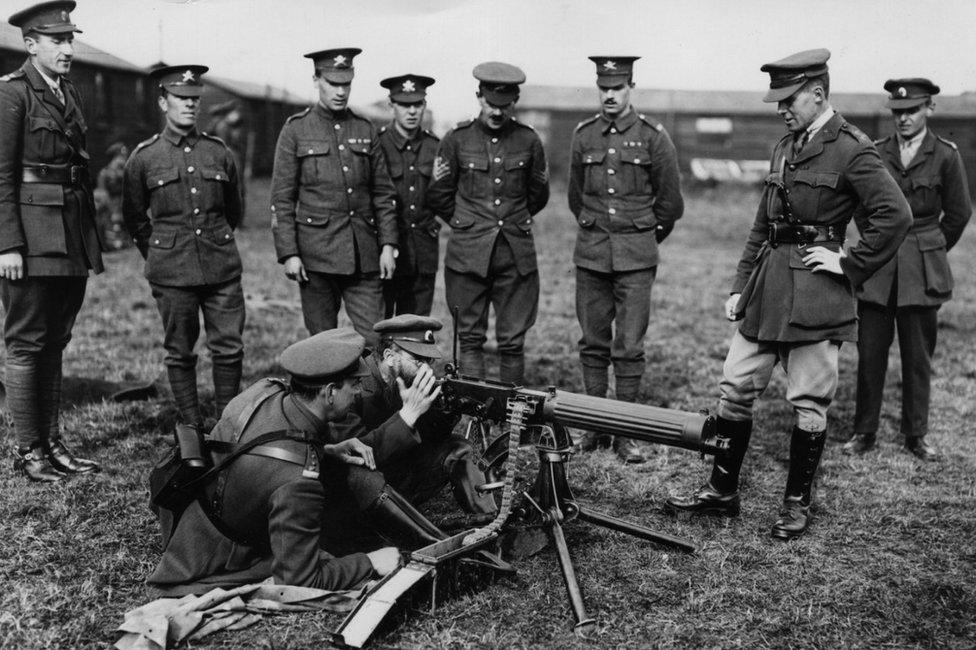
The White Russian cause was championed by Winston Churchill, then Secretary of State for War
Mr Pringle, who lives in Newmarket, said the Russian soldiers had had little exercise and nutrition while in the German PoW camps.
"It took a while to get them fit enough and then they were trained in the use of the latest weapons," he said.
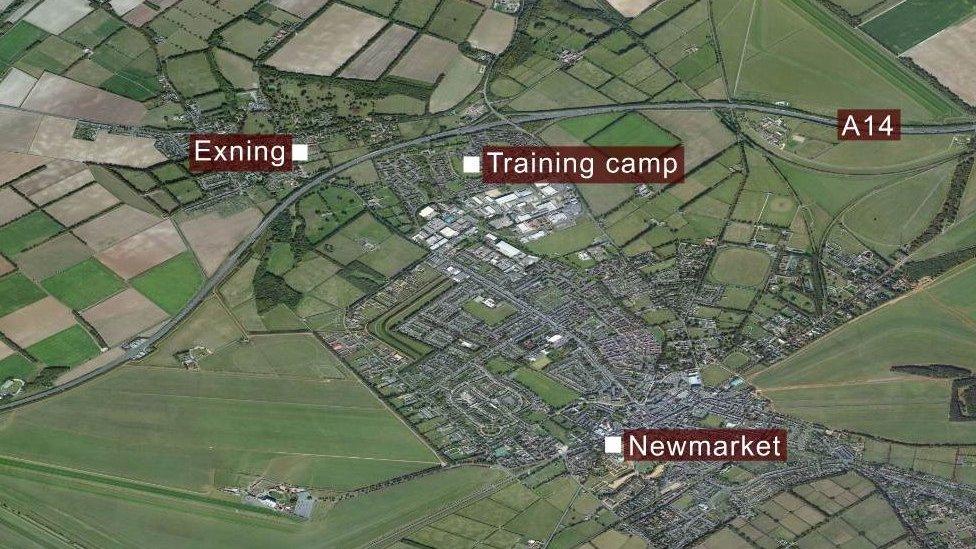
Tony Pringle says the training camp was somewhere in an area now occupied by the Studlands Park housing estate
"It must have been a bit of a cultural shock for them, but they at least got proper food.
"Part of the reason for dumping them in Newmarket was to get them fighting fit, so they could return to Russia.
"It wasn't altruistic of Britain - it was to replace the British troops out there."
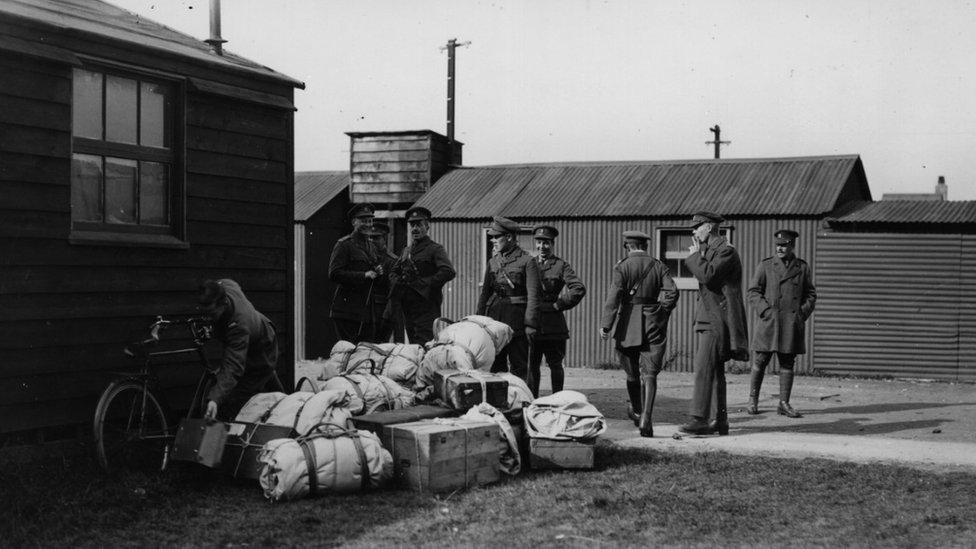
The Russian soldiers were brought to Suffolk from prisoner of war camps in Germany where they had little exercise and poor nutrition
Mr Pringle said nothing of the camp survives in Exning and he could not establish its exact location.
He added it would be good to get more people interested in the history of the camp.
- Published18 April 2013
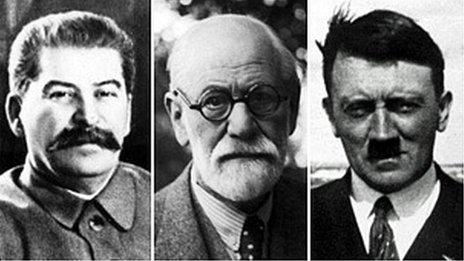
- Published28 August 2012
